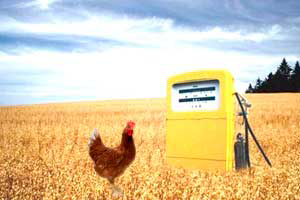NCC scorns EPA’s lack of decision on RFS standard

The US Environmental Protection Agency has announced that it will not issue a final 2014 Renewable Fuel Standard (RFS) until next year, missing its deadline by more than a year.
According to statute, EPA is supposed to finalise each year’s RFS rule by the previous November. “Instead of providing the market some clarity by adhering to the statutory deadlines, EPA waited to see if the consumption of gasoline would go up this year as a tactic to inflate ethanol production,” said NCC President Mike Brown.
“EPA Administrator Gina McCarthy said EPA would use the ‘most up to date’ numbers to set the 2014 standards – that was in April, nearly five months into the compliance year, and more than six months ago. Waiting to set the standards after the fact is irresponsible and discriminatory, but unfortunately, the standard practice.”
EPA has not issued the volumes on time since 2009:
“This seesaw process by which the EPA proposes an up-and-down, now-and-later moving target as the compliance year unfolds leaves poultry and livestock producers unable to plan and budget effectively,” Brown added. “While corn prices have moderated, volatility and uncertainty are the true business-killers.”
Brown continued, “On top of all of this, we believed at one time that the original RFS included a workable provision that provided for an ‘off ramp’ in times of economic crisis. On at least two major occasions – in 2008 and 2012 during catastrophic weather events – that belief has proven false.
“What more evidence does the administration and Congress need to prove the RFS — and the administration of it — is broken beyond repair? The reality of this unworkable, unsustainable and imbalanced policy must be addressed in any energy or economic package that Congress considers in the near future.”
Brown also noted that all of the numbers this year show that the biofuels industry has flourished, effectively without an RFS mandate, which is clear evidence the RFS is no longer needed. “And for a program that was billed as being created to end our dependence on foreign oil, the ethanol industry is exporting its product at a rate faster than snow falling this week in Buffalo.”
The USDA estimates that there will be 5.15 billion bushels of corn used by ethanol this year – nearly 36% of the total US corn crop. When the original RFS was implemented during the 2005/06 crop year, ethanol consumed about 15% of the corn crop. Since the RFS was enacted, chicken producers have incurred more than $44 billion in higher actual feed costs due to the RFS.
“Despite this year’s record harvest, the chicken industry is just one drought, flood or freeze away from having to face higher feed prices – and consumers facing even higher food prices – because of the amount of corn that is mandated to be used as fuel,” Brown concluded.













